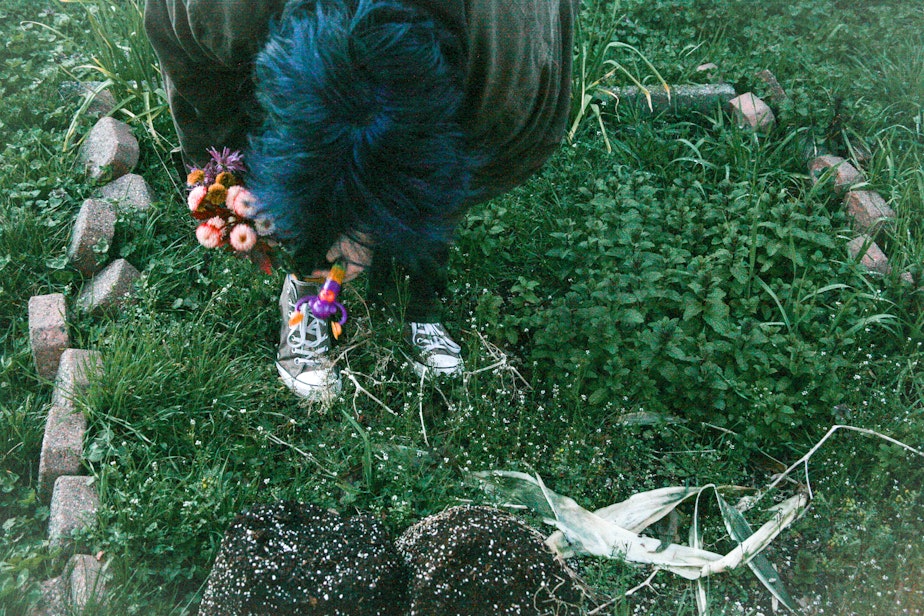One teen reflects on his experience at a residential mental health treatment center

In the luxe hills of Calabasas, California, near the homes of Hollywood stars, there are treatment centers for teens who are struggling with mental health and addiction. RadioActive’s Caden LaMar talked to Kai, an alumni of one of these residential treatment centers, about his experience there.
[RadioActive Youth Media is KUOW's radio journalism and audio storytelling program for young people. This story was entirely youth-produced, from the writing to the audio editing.]
I
have been dating Kai for almost a year, and I remember the time he was away at treatment. I remember missing him and writing to him almost every day.
Kai's family made the decision for him to go to a residential treatment center. And while some youth do benefit from places like these, Kai said he did not have a positive experience there.
Kai was at the treatment center for two months. But when he left for the center, he was told that his stay would be one month, at most. Kai and I both expected him to be back by my birthday in July, but he didn’t return until August. I heard his voice twice in that entire two months, and that was only because he told staff members he was calling his mom instead of me.
Sponsored
“I feel like before I left, I was not doing mentally well, but I was getting a lot better on my own. I was doing it myself," Kai said. "And I was ripped away from that for two months to go to a place that I didn't need to, where I knew nobody, and I was not comfortable. And it was not a good experience.”
I asked him about the moment he realized he would be sent away, and what that made him feel towards his family.
“I cried," Kai said. "I thought about running away, but that wouldn't really help my case. I didn’t have anywhere to go. I feel like I trust my parents a lot less now. I feel like it very much impacted my relationship with them.”
Kai told me that the treatment center never had a consultation with him. They only talked to his parents, even though he was 17 years old at the time.
Sponsored
I’m someone close to Kai, but hearing a lot of these details was still a shock.
“There were five other kids there, but I was still very lonely because I was taken away from my whole life and all of my friends and loved ones, and I wasn't even allowed to talk to them," Kai said.
At the treatment center, there was a level system based on behavior that kept Kai from accessing certain privileges.
"I never moved up levels because I didn't behave well enough. It was like being punished for not being mentally healthy enough," he said.
Kai said that that despite everything going on, while he was at the treatment center, he had to remember the good stuff.
Sponsored
“Like letters from my best friend," Kai said. "And we got to watch 'My Little Pony' and 'Twilight' sometimes."
Kai said that all he really needed at the time was someone to listen to him, not make choices for him.
"The only thing that I really needed was a good therapist that I was comfortable with," he said.
I asked Kai what he'd say to parents who are thinking about sending their child to a residential treatment center.
“You need to listen to your child and what they tell you that they need," Kai said. "Don't just believe that you know what's best for them because you're their parent, because you are not inside their mind, and you have not had their experiences.”
Sponsored
Kai’s been home for almost a year now, where he watches 'My Little Pony' and 'Twilight' all the time.
This story was produced in a RadioActive Youth Media one-week Intro to Radio Storytelling workshop for high school-age youth. Production assistance by Iz Ortiz and Lily Turner. Prepared for the web by Leila M'baye.
Find RadioActive on Instagram, Twitter, TikTok, YouTube and Facebook, and on the RadioActive podcast.
Support for KUOW's RadioActive comes from the Bill & Melinda Gates Foundation Discovery Center and BECU.



